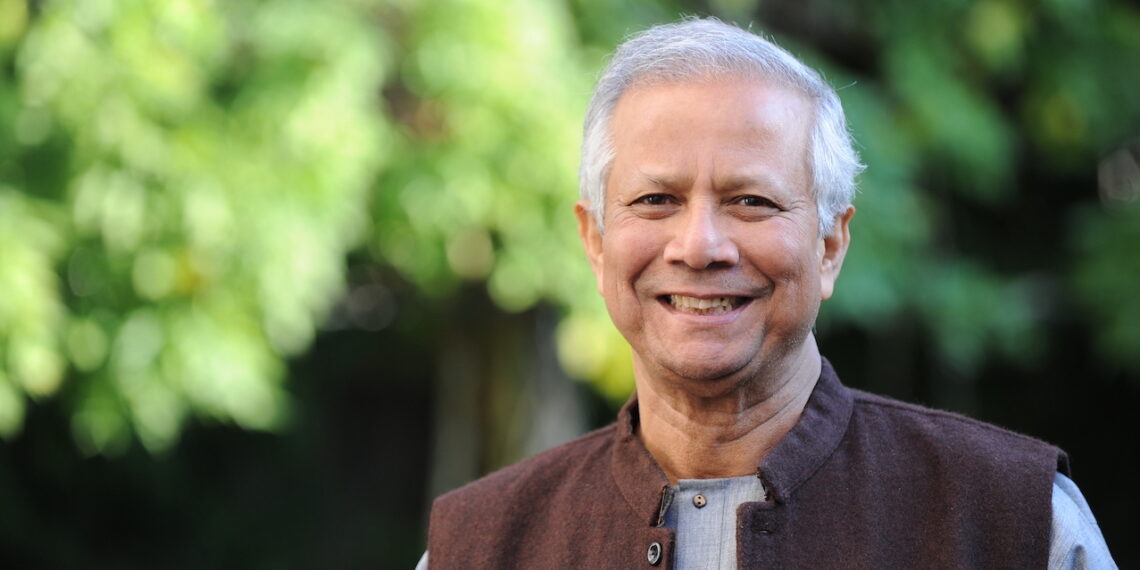If you really believe that elections will be held in Bangladesh between December 2025 and June 2026, forget it.
Bangladesh’s interim authority Chief Advisor is 85-year-old, alright, but he is wily as an old fox.
It is for this very reason that his Western benefactors chose him to play the role of head of an interim authority that is really not accountable to the people.
Mohammad Yunus’ location in this fuzzy zone, in which the powerful army has a far more crucial role, gives his benefactors the advantage of riding the roughshod over normal politics and democratic principles, howsoever fragile or broken, to undertake their mission.
Make no mistake; establishing democracy in Bangladesh is the last thing on the mind of Yunus’ sponsors and promoters.
Contrast this uncertain situation now, especially after August 8, 2024, when Yunus took oath as chief advisor, to some Western governments’ shrill, high-pitched demand for “free and fair elections”.
No US public official or even the country’s charge d’affaires in Dhaka is making any public statement on why Bangladesh needs to go in for early “free and fair” elections so that a political party that is elected as a consequence of a popular mandate and the consent of the people is able to steady the political-democratic ship when that is the crying need of the time.
The equation, as it exists now, is simple enough. The prolonged continuation of a quasi-government or authority, with the backing of the army, is just the right kind of domestic power balance that is most suitable for Western designs.
That design is not to ‘fix’ Bangladesh – its politics, its state and democratic institutions, its disturbed social fabric and its crippled economy – but to continue to create the conditions for this uncertain state of affairs to run for a sufficiently long period of time.
This would give sufficient time for Western interests in Myanmar to take some shape. Or so the Western states might like to think.
Let us be sure that military operations have a terrible record, globally, of not sticking to any definite deadline.
And who else, but the Western nations, have an unenviable record on this front? It has begun emerging, especially after the visit of a top general in the USARPAC (US Army Pacific), Lt Gen Joel Vowell that the Bangladesh Army has agreed to commit its forces to any operation along the borders with Myanmar’s Rakhine State where the Arakan Army is militarily prepared to launch a final, all-out offensive against the junta forces in three key townships, including Sittwe and Kyaukphyu.
But this American operation, which is closely, if covertly, linked to the insidious Burma Act, could go beyond the Rakhine State and into other parts of Myanmar.
Now, this is where the Western nations need the Bangladesh Army the most.
Any military operation, even if it requires the use of proxies, is fraught with uncertainties and other contingencies, which could well go beyond the December 2025-June 2026 timeline – precisely the timeframe that Yunus and his acolytes have been touting in favour of.
At the same time, another insidious move has been set in motion by Yunus’ Grameen Group minions who have been advised to be part of a social media campaign that seeks to project the ‘chief advisor’ as an indispensable instrument in the pulling Bangladesh out of the political and security morass it is now in.
The stealthy campaign is designed to prolong Yunus’ continuation in power. Not because he is a messiah who will fix all of Bangladesh’s problems. He is a stooge who has been placed to further the military objectives of the United States in Myanmar.
A former Bangladesh Army general who, by virtue of being close to the chief, General Waker-uz-Zaman, confirmed that the men in olive green are fully aware of the US’ designs – in Bangladesh and Myanmar.
“But there is only so much we can do. We are caught in the intricate web of regional geopolitics and there is no way we can exit now,” this general said.
Already ground level preparations, that will help and advance the US’ proxy war against the Myanmar military junta is underway albeit discreetly.
These preparations are in the form of logistics support in areas close to the Myanmar-Bangladesh border. However, much will depend on how quickly these logistical support structures will become operational.
It could take a month or more, but at this point in time the Bangladesh Army has little or no room to squirm out of a situation over which even the Indian security establishment has little control.
One last point – the Bangladesh Nationalist Party, a strong contender to lead Bangladesh politically – is aware of the Western machinations involving the army, but has little power or leverage to make any difference at this point in time, on the ground.
Unless it breaks free of the self-imposed shackles and takes to a democratic mass movement aimed at restoring ‘normal politics’ in Bangladesh.















